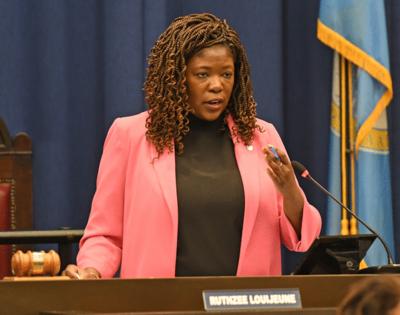Boston City Council looks to mandate ordinances, budgets be based on racial, social equity
Published in News & Features
While the future of federal DEI programs is uncertain, the Boston City Council is looking to establish protocols that ensure all ordinances and budgetary decisions “adhere to principles of racial and social equity.”
The council’s Committee on Government Operations is set to hold a hearing on Monday on an ordinance that would mandate councilors and city officials to consider inequities when shaping future policies.
If approved, “RISE: Reshaping Inequities through Systematic Empowerment” would create an independent committee composed of a director and legislative liaisons serving as research consultants for councilors.
According to the proposed ordinance, an equity task force would also form, and councilors and all city department leaders would be required to take annual training on “equity, implicit bias and operationalization of equity practices.”
“It is a comprehensive policy,” Councilor Brian Worrell said when he pitched the ordinance in August, “but at its core, RISE aims to create a toolkit for equity by embedding it into every step of the decision-making process in our city.”
“Every policy we craft, every decision we make must be a step forward toward a more equitable future,” Worrell added, “a more prosperous future, a future where every Bostonian can see themselves.”
Per the proposed ordinance, equity is defined as the “elimination of disparities such that race, class, ethnicity, religion, disability status, sexual orientation, gender identity, language spoken, or perceptions thereof no longer predict opportunities, outcomes, or the distribution of resources for residents of the city.”
Boston Democratic Congresswoman Ayanna Pressley has found herself at the center of a federal debate on the future of diversity, equity and inclusion programs.
If approved, the so-called “Dismantle DEI Act of 2024” would ban DEI programs within the federal government and prevent associated mandates in federal contracting and grants.
Republicans argue that DEI programs “waste taxpayer dollars” and sew “harmful ideology,” while Democrats contend the initiatives are in response to systemic racism.
Pressley blasted Republicans during a House Oversight Committee hearing in November, describing their approach to the bill “as predictable as it is nonsensical.” Toward the end of her remarks, she told Republicans to “please keep Dr. Martin Luther King Jr.’s name out of your mouths.”
Worrell, whose district includes Mattapan, Dorchester, and parts of Jamaica Plain and Roslindale, sponsored the Boston City Council’s proposed ordinance. Councilors Julia Mejia and Tania Fernandes Anderson co-sponsored the legislation.
The ordinance outlines how former Mayor Marty Walsh issued an executive order during his tenure that created the Equity & Inclusion Cabinet, a racial equity fund, new zoning amendments, the Office of Cultural Affairs and a Reparations Commission Taskforce.
Beginning in fiscal year 2026, the mayor and councilors would be required to include a written analysis of how proposed ordinances, home rule petitions and budget amendments address equity.
“If we are really serious about moving marginalized communities forward,” Mejia said in August, “then we have to be super intentional about creating not just a Department of Equity & Inclusion, but what else are we going to do? This act particularly gets us closer to that work.”
_____
©2024 MediaNews Group, Inc. Visit at bostonherald.com. Distributed by Tribune Content Agency, LLC.







Comments